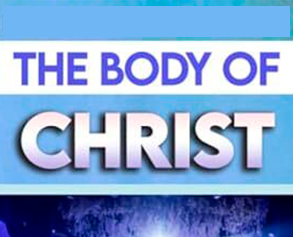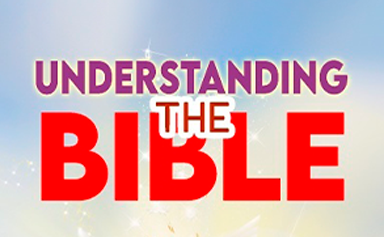
- Instructor: Admin
- Lectures: 5
- Quizzes: 5
Introduction:
This course explores the relationship between anthropology (the study of humanity) and Biblical theology, aiming to understand the nature of humanity through the lens of Scripture. Students will examine how the Bible speaks about the origins, purpose, fall, and redemption of humanity, with a focus on integrating theological insights with anthropological concepts. This course combines insights from human anthropology, the study of humanity, with Biblical theology, which examines how the Bible addresses human nature, purpose, and destiny. Here’s a comprehensive course structure:
ANTHROPOLOGY_THE_DOCTRINE_OF_MAN_COURSE_PLUS_QUIZ
Course Objectives:
– To explore the concept of human nature through Biblical theology.
– To understand the implications of anthropology in Biblical teachings on sin, salvation, and the image of God.
– To analyze key Biblical texts that address humanity’s origin, identity, and destiny.
– To provide a holistic perspective on humanity’s place in creation and God’s redemptive plan.
Prerequisites:
– Basic knowledge of Christian theology.
– Introductory understanding of human anthropology.
Course Outline:
What is Anthropology?
– Overview of Anthropology: Biological, Cultural, Linguistic, and Archaeological.
– Human Nature and Identity.
– The Historical Development of Anthropology.
The Intersection of Anthropology and Biblical Theology
– How Anthropology and Biblical Theology inform one another.
– An overview of Biblical anthropology.
The Creation of Humanity: Image of God
The Doctrine of Creation
– Creation in Genesis 1-2.
– God’s creative process: “Ex nihilo” (Creation out of nothing).
– Humans as part of God’s good creation.
The Image of God (Imago Dei)
– Theological implications of humans being made in the image of God.
– The relationship between God and humanity.
– Humanity’s responsibility and purpose in creation (Genesis 1:26-28).
Anthropology and the Image of God
– Exploring how human beings reflect God’s nature.
– How sin has affected the image of God in humans.
Human Nature and the Fall
– The Doctrine of the Fall
– Genesis 3: The Fall of Adam and Eve.
– Theological implications of the fall: Original Sin.
– The consequences of the fall on human nature and the world.
Anthropology and Sin
– The concept of sin in anthropology.
– The universality of sin: Fallen human nature and its effect on culture, biology, and relationships.
– How the Bible portrays the corrupting influence of sin.
Human Struggle and the Need for Redemption
– The human condition post-fall.
– The deepening divide between humanity and God.
– The impact of the fall on both individual and collective human identity.
Humanity’s Redemption in Christ
– The Person and Work of Jesus Christ
– The nature of Christ as fully divine and fully human.
– The redemptive work of Christ: Atonement and salvation.
– Christ’s role in restoring humanity’s original purpose.
Theological Implications of Redemption
– How redemption affects human nature and destiny.
– The transformation of the image of God through salvation in Christ.
– The doctrine of new creation in Christ (2 Corinthians 5:17).
Anthropology and Redemption
– Exploring human nature’s potential for restoration.
– Christian anthropology in light of the gospel.
– The role of the Holy Spirit in the life of the believer.
Human Flourishing and the Kingdom of God
– The Kingdom of God and Human Flourishing
– Biblical perspective on the Kingdom of God (Matthew 6:33).
– How God’s reign impacts human identity and purpose.
– The flourishing of human beings in relationship with God.
– Eschatology: The Future of Humanity
– The promise of the New Heaven and New Earth (Revelation 21-22).
– The redemption of creation and human beings.
– The glorification of the human body and soul.
– Anthropology and the Christian Vision of Human Flourishing
– Human beings as participants in the restoration of creation.
– The cultural mandate in the context of God’s redemptive plan.
– Christian anthropology in social ethics, justice, and care for creation.
Contemporary Issues in Anthropology and Biblical Theology
– Human Identity and Postmodern Culture
– How Biblical anthropology speaks to contemporary cultural views of human identity.
– Addressing questions on gender, race, and sexuality from a Biblical perspective.
– Ethical Implications of Anthropology in the Modern World
– The Biblical response to issues such as bioethics, cloning, and genetic engineering.
– Human dignity and the sanctity of life.
– Addressing poverty, injustice, and oppression in light of the biblical view of humanity.
– The Role of the Church in Addressing Human Suffering
– The Church’s mission in addressing human brokenness.
– Bringing healing and redemption to a hurting world.
– The eschatological hope for a redeemed humanity.
Course Assignments:
- Weekly Readings: Select readings from textbooks, Scripture, and scholarly articles.
- Reflection Papers: Write weekly reflections on course materials and their real-world applications.
- Research Paper: Write a 18-20 pages research paper on a specific topic related to anthropology and Biblical theology, such as “The Doctrine of Sin and Human Identity” or “The Restoration of the Image of God in Christ”.
- Group Project: Collaborate with peers to present on a contemporary issue related to human nature and Biblical theology.
Recommended Reading:
“THE RESCUE MISSION OF JESUS” by DR. ABRAHAM PETERS
“The Bible and Anthropology: A Christian Perspective” by Chris Sinkinson
“Creation and the Fall” by Hans Urs von Balthasar
“The Nature of Humanity” by John M. Frame
“The Image of God in Man: Anthropology in the Old Testament” by G.J. Wenham
“Theology of the Old Testament” by Walter Brueggemann
“Systematic Theology” by Wayne Grudem (especially sections on humanity, sin, and salvation)
Assessment:
– Class Participation: Engaged discussion in weekly sessions (20%).
– Reflection Papers: Regular submissions (20%).
– Research Paper: Depth of research and biblical integration (30%).
– Group Project/Presentation: Understanding and communication of key issues (30%).
Conclusion:
This course will equip students with a comprehensive understanding of the human condition from both an anthropological and theological perspective. It will offer both scholarly and practical insights into how Biblical teachings shape our understanding of human identity, purpose, destiny and the hope for redemption.
Curriculum
- 1 Section
- 5 Lessons
- Lifetime
- Modules10
- 1.1Divine Design and Human Responsibility
- 1.2Divine Design and Human Responsibility5 Questions
- 1.3Divine Judgment and the Restoration of Hope
- 1.4Divine Judgment and the Restoration of Hope5 Questions
- 1.5The Foundation of Biblical Anthropology
- 1.6The Foundation of Biblical Anthropology5 Questions
- 1.7The Origin and Consequences of Sin
- 1.8The Origin and Consequences of Sin5 Questions
- 1.9The Threefold Nature of Death
- 1.10The Threefold Nature of Death5 Questions





